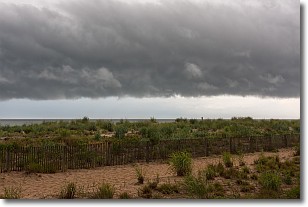Weather Alert in Louisiana
Flood Warning issued April 24 at 10:47AM CDT until May 10 at 4:00AM CDT by NWS New Orleans LA
AREAS AFFECTED: Ascension, LA
DESCRIPTION: ...The Flood Warning is extended for the following rivers in Louisiana... Mississippi River At Reserve affecting St. John The Baptist, St. Charles and St. James Parishes. Mississippi River At Donaldsonville affecting Ascension Parish. Mississippi River At Red River Landing affecting East Baton Rouge, Pointe Coupee and West Feliciana Parishes. ...The Flood Warning continues for the following rivers in Louisiana... Mississippi River At Baton Rouge affecting West Baton Rouge and East Baton Rouge Parishes. For the Lower Mississippi River...including Red River Landing, Baton Rouge, Donaldsonville, Reserve, New Orleans...Major flooding is forecast. * WHAT...Minor flooding is occurring and moderate flooding is forecast. * WHERE...Mississippi River at Donaldsonville. * WHEN...Until Saturday, May 10. * IMPACTS...At 27.0 feet, Navigation becomes difficult for smaller river craft. Safety precautions for river traffic are urged. * ADDITIONAL DETAILS... - At 10:00 AM CDT Thursday the stage was 29.1 feet. - Bankfull stage is 23.0 feet. - Forecast...The river is expected to rise to a crest of 31.0 feet Thursday, May 1st. The river is expected to fall below flood stage Friday, May 9th. - Flood stage is 27.0 feet. - http://www.weather.gov/safety/flood
INSTRUCTION: Motorists should not attempt to drive around barricades or drive cars through flooded areas. Caution is urged when walking near riverbanks. Additional information is available at www.weather.gov/lix. Click on the Rivers and Lakes menu for forecasts and observations. The next statement will be issued late tonight at 300 AM CDT.
Want more detail? Get the Complete 7 Day and Night Detailed Forecast!
Current U.S. National Radar--Current
The Current National Weather Radar is shown below with a UTC Time (subtract 5 hours from UTC to get Eastern Time).

National Weather Forecast--Current
The Current National Weather Forecast and National Weather Map are shown below.

National Weather Forecast for Tomorrow
Tomorrow National Weather Forecast and Tomorrow National Weather Map are show below.

North America Water Vapor (Moisture)
This map shows recent moisture content over North America. Bright and colored areas show high moisture (ie, clouds); brown indicates very little moisture present; black indicates no moisture.

Weather Topic: What are Shelf Clouds?
Home - Education - Cloud Types - Shelf Clouds
 Next Topic: Sleet
Next Topic: Sleet
A shelf cloud is similar to a wall cloud, but forms at the front
of a storm cloud, instead of at the rear, where wall clouds form.
A shelf cloud is caused by a series of events set into motion by the advancing
storm; first, cool air settles along the ground where precipitation has just fallen.
As the cool air is brought in, the warmer air is displaced, and rises above it,
because it is less dense. When the warmer air reaches the bottom of the storm cloud,
it begins to cool again, and the resulting condensation is a visible shelf cloud.
Next Topic: Sleet
Weather Topic: What is Snow?
Home - Education - Precipitation - Snow
 Next Topic: Stratocumulus Clouds
Next Topic: Stratocumulus Clouds
Snow is precipitation taking the form of ice crystals. Each ice crystal, or snowflake,
has unique characteristics, but all of them grow in a hexagonal structure.
Snowfall can last for sustained periods of time and result in significant buildup
of snow on the ground.
On the earth's surface, snow starts out light and powdery, but as it begins to melt
it tends to become more granular, producing small bits of ice which have the consistency of
sand. After several cycles of melting and freezing, snow can become very dense
and ice-like, commonly known as snow pack.
Next Topic: Stratocumulus Clouds
Current conditions powered by WeatherAPI.com




